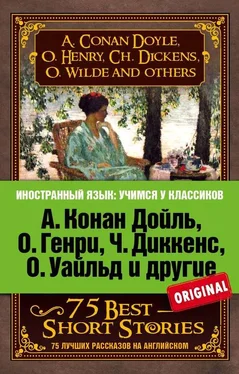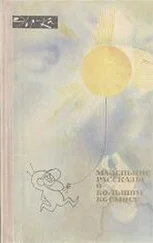Corinth– a city in northeastern Mississippi; the bloody battle took place to the north of the city during the American Civil War.
the Yanks– Yankees, a nickname of the citizens of New England states; the word was used by Southerners for Northerners and Federal soldiers during the American Civil War.
Niagara– Niagara Falls on the Niagara River in northeastern North America, on the USA-Canadian border
Aeolian harps– Aeolian harp is a musical instrument in which sound is produced by the movement of the wind over the strings; in Greek mythology, Aeolus is the god of the winds.
delirium– mental state marked by confused thinking, hallucinations, etc. as a result of the intoxication of the brain caused by fever or some other physical disorder
Monterey– a city in California, 135 km south of San Francisco; the first Europeans in the region were the Spanish in 1542.
the Blavatsky people– followers of Helena Blavatsky (1831–1891), an occultist and spiritualist; she founded the Theosophical Society to promote theosophy (divine wisdom), a philosophical-religious system.
Sepoy– 1) a place in India; 2) an Indian soldier in the service of the British India Company.
the Thugs– members of the Indian organization of professional assassins who travelled throughout the country for several cen-turies since 1356
vraisemblance= love of truth ( French )
Garrick– David Garrick (1717–1779), a famous English actor, producer and dramatist, one of the managers of the Drury Lane Theatre in London
the Syndicate Mill– a mill belonging to the Syndicate, an association of racketeers in control of organized crime in the USA
Dionysius(430 BC–367 BC) – a tyrant of Syracuse, an ancient Greek city on the east coast of Sicily
Pall Mall– Pall Mall Gazette, a British newspaper, one of the “poplars”
tetradrachm– an ancient Greek coin used for trade with the Scythians and the Celts
Offa– the king of Mercia (757–796), one of the most powerful kings of Anglo-Saxon England
Mercia– one of the most powerful kingdoms of Anglo-Saxon England in the 7th–9th centuries
Richmond– an outer borough (an incorporate town or district with special privileges) of London, along the River Thames
Padua– a city in northern Italy, west of Venice, first mentioned in 302 BC
Euclideas– here: one of ancient Greek coins
Kentuckian– a resident of Kentucky, the US state in the south (102 694 sq. km)
a Sandwich Islander– a resident of the Sandwich Islands, the second name of the Hawaiian Islands, a group of the volcanic islands in the Pacific Ocean; the first European who visited the islands in 1778 was Captain James Cook (1728–1779).
Pompadour– Marquise de Pompadour (1721–1764), the mistress of Louis XV, king of France; she was a well-educated woman and a patron of art and literature.
Olympus– a mount in Greece (2,917 m); in Greek mythology, the place where gods lived.
the Lost Atlantis– a legendary island in the Atlantic Ocean, described by antique authors as a highly developed and powerful civilization
Florence– a city in central Italy, founded in the 1st century BC and notable for its works of art
the Commandments– in the Bible, the list of religious principles revealed to Moses, a Hebrew prophet of the 14th—13th centuries BC, on Mount Sinai
the Mosaic Law– the religious principles of Judaism revealed to Moses, a Hebrew prophet of the 14th—13th centuries BC
the Legion of Hono(u)r– the National Order of the Legion of Honour, a military and civil order of the French Republic, created by Napoleon in 1802
damask– a silk, fine, patterned fabric, originally produced in Damascus, Syria
catechism– a religious instruction in the form of questions and answers
portière– heavy curtains hung in a doorway
Marseilles– a city and port in southern France on the Mediterranean Sea, founded 2,500 years ago
Desdemona– a fictional character in Shakespeare’s tragedy ‘Othello’ (1603)
Belgravia– an area in the borough of Westminster in London, east of Chelsea and south of Hyde Park
Popish priest= Catholic priest
Buckingham Palace– royal residence in London; the famous architect John Nash converted the house built in 1705 for the Duke of Buckingham into a royal residence for king George IV.
the Exchequer– the government department responsible for receiving and distributing the public revenue, founded in the 12th century; later the Exchequer was joined with the Treasury.
Gladstone– William Ewart Gladstone (1809–1898), four-time prime minister of Great Britain
Gladstone– William Ewart Gladstone (1809–1898), four-time prime minister of Great Britain
synod– in the Christian church, a local assembly of church officials
Burmah– Burma (now Myanmar), a country in Southeast Asia
St. Peter– the Apostle, one of Christ’s disciples; when asked thrice, after Jesus Christ’s arrest, if he knew Him, St. Peter said ‘No’.
rococo– a style in painting, sculpture, architecture and decorative arts, originated in Paris in the early 19th century
archangel– in the hierarchy of angels, one of the chief angels
omnibus– a large vehicle designed to carry passengers on a fixed route, a bus
the Pantheon– the 18th century building in Paris, an example of Neoclassical architecture with columns and a high dome
Читать дальше
Конец ознакомительного отрывка
Купить книгу












